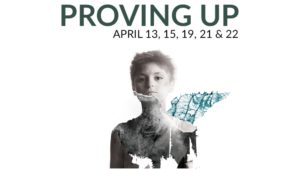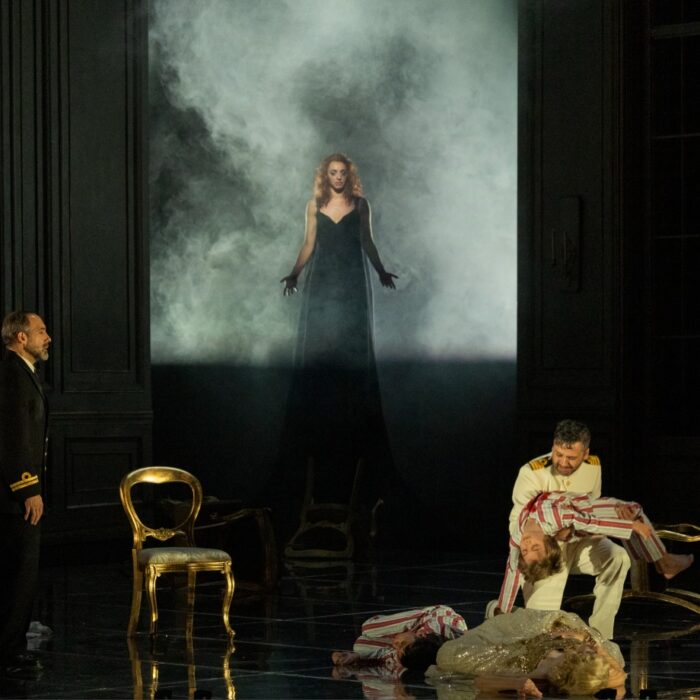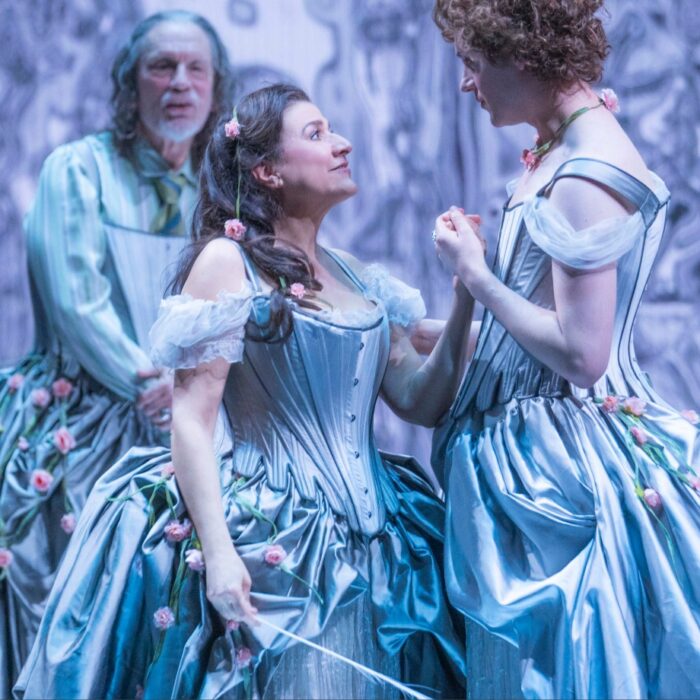
Opera Omaha 2017-18 Review – Proving Up: Mazzoli and Vavrek Masterfully Explore Migration Hardship in the Heartland
By Santosh VenkataramanIs there a better way to spend an opera festival in Nebraska than to see an opera set in Nebraska? My weekend at the inaugural ONE Festival presented by Opera Omaha was highlighted by seeing the brand-new “Proving Up” by the dynamic duo of Missy Mazzoli and librettist Royce Vavrek on two occasions.
The opera is based on the short story of the same name by Karen Russell and finds its basis in the Homestead Act of 1862. That arcane law signed by President Lincoln granted free land for Western migrators willing to settle for a five-year period while also meeting numerous other stipulations.
One of those stipulations was not that the house had to have a window yet this was the central device for the fictional Zegner family’s move. The need to possess a window in their home is a requirement for the Zegners to “prove up” and improve their home to conditions imposed by the government. The outcome of their desire to do so is an uphill battle in the worst way.
Dynamite Duo
Mazzoli and Vavrek are together best known for creating “Breaking the Waves,” which debuted at Opera Philadelphia two years ago. Mazzoli’s music in “Proving Up” has unique instrumentation that features a piano, six harmonicas (two for cast members), and percussive effects that included sandpaper and a whip. Her score was dark and punctuated by a melodic intensity that left no doubt as to the mood of this piece with many sounds evoking terrors of migration both real and imagined.
Vavrek employed some gallows humor with much of the words. This journey is about a dream very clearly becoming a nightmare. The tightness of the 75-minute one-act opera formed an immersive experience with no wasted moments within this macabre world.
Whose Story?
These performances marked the first fully staged versions of “Proving Up,” which debuted in January via Washington National Opera’s American Opera Initiative program. These stagings also had the interactive element of talkback sessions with creators and audience members afterward.
At one point, a gentleman introduced himself as a longtime Nebraska resident and asked about the darkness of this piece, inferring the success of the Homestead Act by remarking that “We are all here now” in contrast to the tone of the work.
Mazzoli responded that “Proving Up” is about those who didn’t make it and Vavrek smartly added that, “History is written by the winners.”
There’s a way to say that in words people here understand well: When the locals write the story of the proud tradition of Nebraska football, they won’t be mentioning last year’s team that went 4-8 and lost its last game at home by 42 points to border rival Iowa. Yet it happened, just like families like the Zegners truly existed in that time period who didn’t find settling an easy affair.
An Entrancing Setting
The team of director James Darrah and scenic designer Adam Rigg created a long rectangular stage with a dirt surface and two graves in the middle of the Zegners’ dead daughters that breathed authenticity. Excellent work by lighting director Pablo Santiago aided in an atmosphere that screamed hopelessness and despair.
This production featured traverse staging with an audience on each side with the orchestra placed on one end. Conductor Christopher Rountree had his back to his orchestra while facing the singers.
While the Zegners’ daughters are deceased, they are present in a form of ghosts in the persons of mezzo-soprano Abigail Nims and soprano Cree Carrico. Their omnipresent machinations added to the supernatural sense of the Zegners’ predicament.
The Descent of an American Family
The surviving Zegners are Ma and Pa and sons Peter and Miles. Peter, portrayed in a non-singing role by dancer Sam Shapiro, has suffered an accident that leaves him in the care of Ma, while Miles is forced to carry out the orders of Pa – who drinks nearly as much as he works.
This opera was written specifically for soprano Talise Trevigne and baritone John Moore as Ma and Pa Zegner. Trevigne is sensational as the matriarch trying to hold together an untenable situation in a heartbreaking characterization while Moore’s hard-drinking belligerence masks his lack of assurance as he presses on into unknown territory.
Just as vital among the principals is the sodbuster, bass Andrew Harris in a company debut whose character confronts Miles on the young Zegner’s journey to deliver the window. Whether the sodbuster is real or imagined is up for debate, but the results of meeting Miles Zegner are devastating and felt to full effect.
Meaning of the American Dream
There is much to unpack from “Proving Up.” The biggest theme is what the meaning of the “American Dream” itself is and how it is intertwined with ownership and a sense of home.
One of the most moving scenes is when Miles Zegner, played by the winning tenor Michael Slattery, sings about the meaning of a home. Young Miles intones, “Who owns the land? What makes the home?” The trumpet that follows him perfectly underlines those questions.
There’s also a political angle to this topic of defining America. If Nebraska is proof of the virtues of the Homestead Act, what does that say about the role of government in that success given the current anti-government political climate in the United States?
The music of Missy Mazzoli is a treat in and of itself and that is especially the case in collaboration with Royce Vavrek. It’s a rarity to see a tale set in Middle America and a welcome and much-needed addition to contemporary opera. To experience “Proving Up” is to see an American story nearly never told: one of the failure of its promise.


